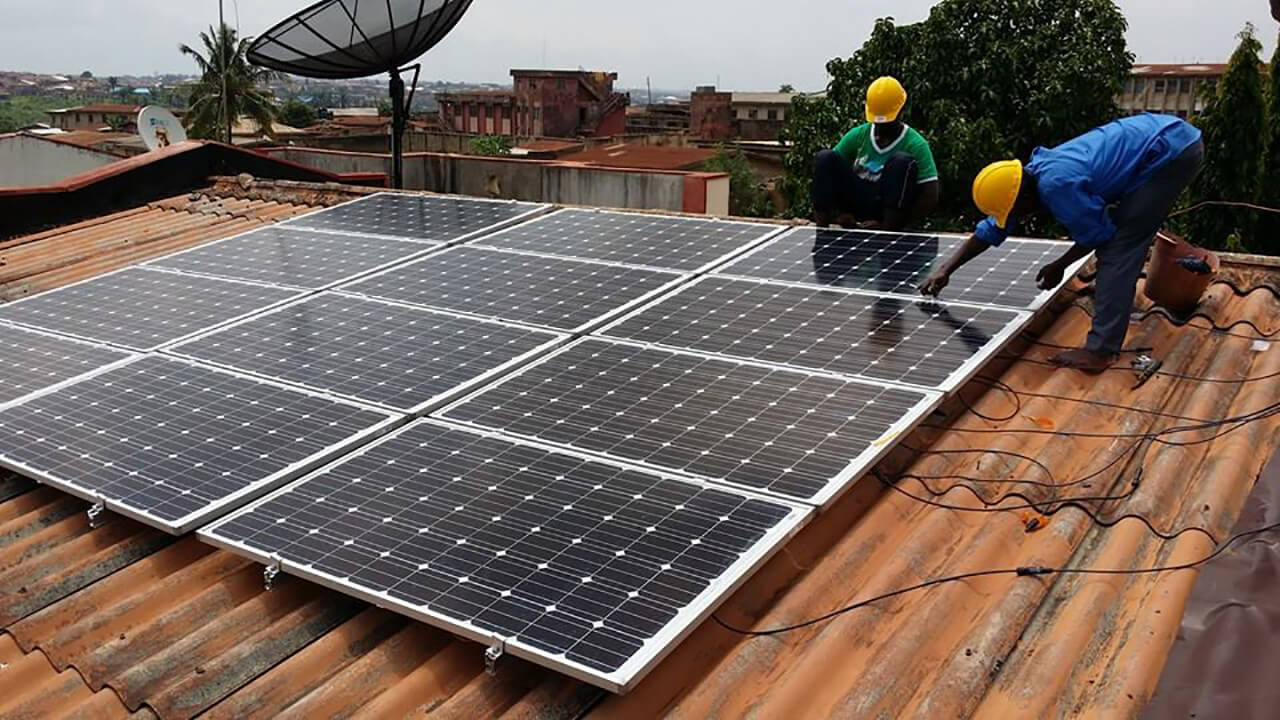
$20,000
Bring 20,000 watts of solar-powered electricity to a power a school and to power a village. An average solar power field would cost $1 per watt for an implementation cost of $20,000 per participating village.
Solar panels are installed on our schools and stored in batteries inside an electrical building adjacent to the school. First providing electricity for the school, then additional electricity is supplied to other parts of the village.
As we have found in our current villages with electricity, the number of students passing the 9th grade exams have risen to as high as 95% when they are able to work on their homework after the sun goes down. A side benefit that helps everyone is the possibility of night school and/or adult literacy courses during early evenings when darkness would otherwise make it impossible.
Electricity is widely unavailable to Malians who live away from urban centers. Until they are connected, most rural households meet their lighting and small power needs with kerosene, dry cells, and car batteries, averaging monthly household expenditure of $4 to $10.
One of Mali’s most abundant resources is sunlight. Mali’s abundant supply of solar potential is a viable option for renewable energy to villages far removed from urban centers.
Rural electrication, is most effectively achieved by mini-grids in individual villages.
An average solar power field would cost $1 per watt for an implementation cost of $20,000 per participating village.